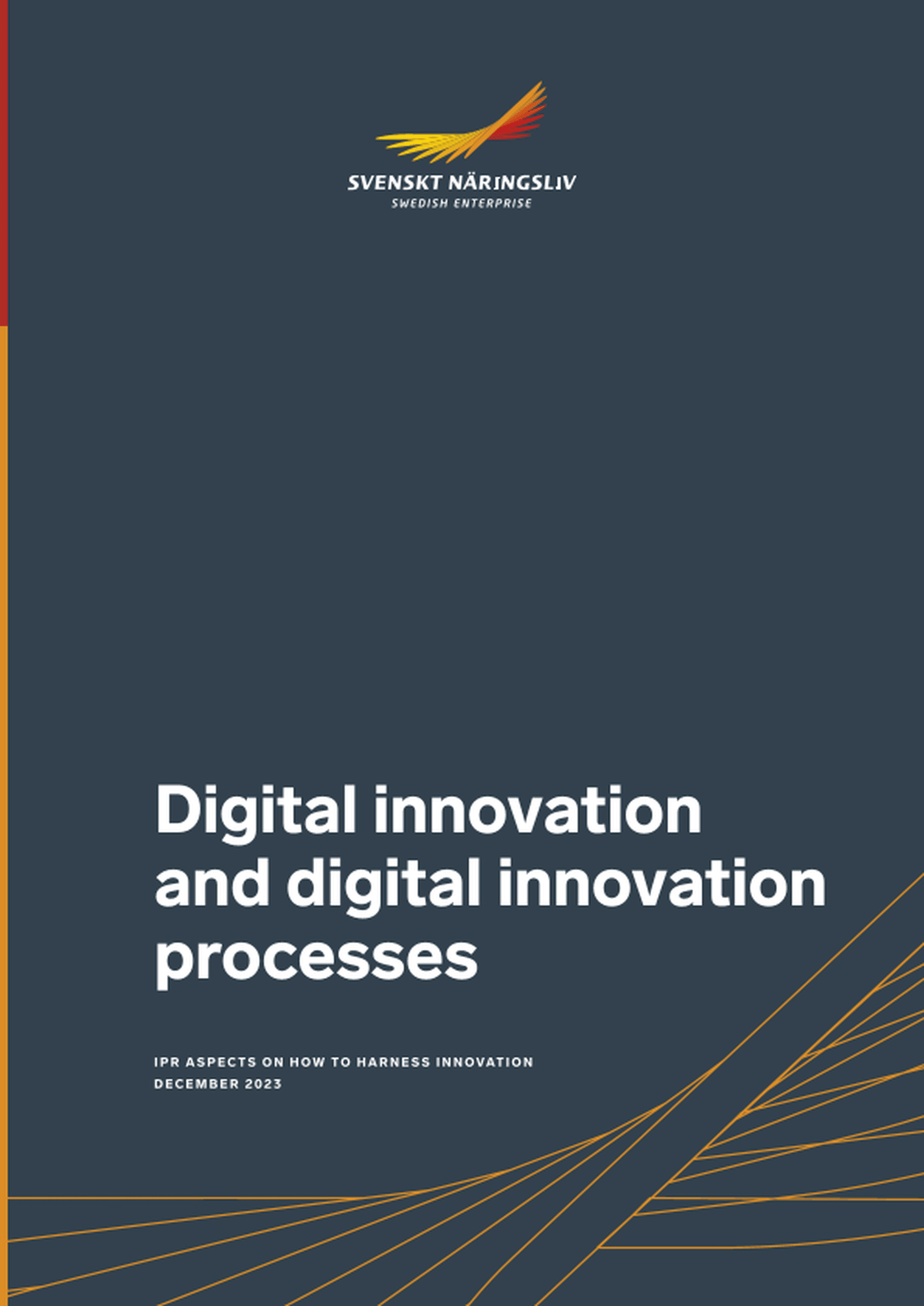Lost opportunities on digital innovation
Not only do we live in a knowledge economy. We also live in a world where digital innovations and digital innovation processes are becoming increasingly important. However, there are substantial challenges in the EU when it comes intellectual property and digital innovation. That is the most important conclusion in a recent report from the Confederation of Swedish Enterprise.
Since a few years, the Confederation of Swedish Enterprise has focused the work on the knowledge-based assets on five challenges. One of the challenges is the new technical reality. With an increasing number of digital innovations, questions arise as to whether these can be protected by any intellectual property rights. The answer is that there is no clear answer in the EU, there is even a legislative mess concerning both patents and copyrights. This legislative mess creates problems since it makes modernising the legislation difficult (or even impossible).

Digital innovation processes are to use digital solutions, such as AI, in the innovation process. During the last few months, almost everyone has started to understand the possibilities that AI can bring. Almost everyone has also started using different services to see how well they function, especially for creating texts and images.
In both patent and copyright legislation there is a prerequisite that the creation must have been done by a human to be covered by protection. If something is created entirely by an AI, that would exclude possibility to for example register a patent. However, there are uncertainties when it comes to use of AI as a part of an innovation process. And again, the legislative mess in Europe makes this challenge difficult to handle.
What the EU does not seem to be willing to discuss is why there are no European platforms growing to become tech giants
In recent years, the EU has been putting forward rules on how to handle the “tech giants” and/or “digital platforms”. Some of these rules concern copyright rules. The EU does see a problem that these giants are from other parts of the world.
What the EU does not seem to be willing to discuss is why there are no European platforms growing to become tech giants. One conclusion in the report is that the IPR challenges on digital innovation and digital innovation processes are part of the problem. The fragmentation of the legislation is hindering European competitiveness. Can we afford that in the long run?